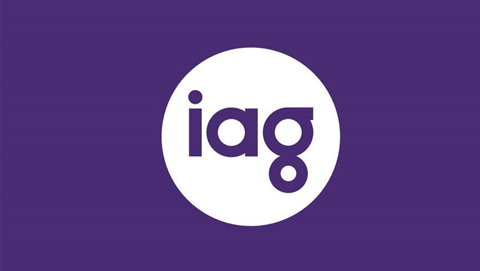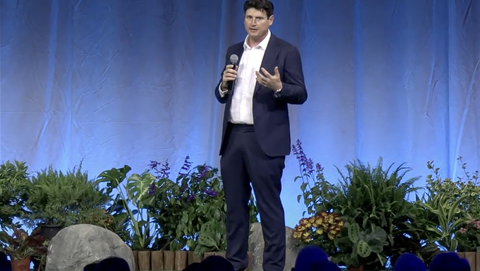We take trust as a given that every transaction we make, every purchase from the profound to the mundane is based on a basic level of confidence both sides have in an equitable outcome.

Trust enables action and action builds trust. The precondition for trust is a system that works for all. We’ve been told it is the beginning and the end of a thriving business environment.
Last week, we were treated to the annual Edelman Trust Barometer, an accumulation of self-proclaimed industry-leading research which has for the last 23 years studied the influence of trust across society.
Edelman defines trust as an organisation’s licence to operate, lead and succeed. They say trust is the foundation that allows an organisation to take a responsible risk. They believe their barometer is the ultimate guide for businesses to succeed in 2023.
This year, the outcomes are looking particularly bleak.
The study examines the relationship institutions across businesses, governments, NGOs and media build with their stakeholders. One of the legacies of the pandemic, they claim is a continuing loss of belief in media and the rise of disinformation.
No surprise, when 2023 promises to be the year of AI and ChatGPT, which will undoubtedly flood the internet with cheap, generic content which has no hope of being fact-checked or reined in in any way. Exaggerating an already contentious issue.
It’s getting harder and harder to know what to believe.
Even the self-appointed gatekeepers of trust have raised more than a few eyebrows with their contradictory behaviour.
While the Edelman Trust Barometer is self-serving by design and more than a little hypocritical, it does provoke some deeper thinking about the very nature of trust.
Trustworthy-ish
Are we so worn down by everything that we no longer even care if brands are trustworthy?
Edelman’s work traps us in a spiral of suspicion with no endpoint.
Think about the purchasing behaviour in your own life. We’ve all done it, where we’ve rationalised a decision based on convenience rather than the feelings from a previous encounter.
Swore to never fly Qantas again, only to book another flight and have your bags disappear into the ether, likely never to be seen again. You’ll just pack a change of clothes in your carry-on this time.
Qantas is a great example of a company who has absolutely trashed its reputation in recent years and could not care less about your bags or how long you may be stranded in that foreign airport.
Yet the airline also made record profits last year.
If we are all going to pony up and buy anyway, it begs the question - what is more important, trust or familiarity?
Trust me
One recent example was British brewer, BrewDog. Anti-sponsor of last year’s World Cup in Qatar, making a “stand” against the country’s human rights abuses.
However, BrewDog spent big on condemning the event, but still sold products in the host country and showed games in its owned pubs. A breach of trust, some might say.
Marketing professor Mark Ritson however thought quite highly of the campaign, stating in a Marketing Week headline, “Those who criticise inauthentic advertising with no deeper meaning miss how perfect it is for making a brand stand out to a 21st-century consumer bombarded with information.”
It doesn’t matter what you claim, as long as people remember that part and forget the other stuff. We’re all too preoccupied to make considered decisions, it seems.
The amateur armchair scientist might say “what we believe is what we choose to see”. This is commonly referred to as confirmation bias. A deeply ingrained mental habit, both energy-conserving and comfortable, to look for confirmations of long-held wisdom rather than violations.
Do you remember that BrewDog contradicted their own PR, or just that they make delicious beer and are good places to watch the game?
Get to the science, guy
From armchair expert to cutting edge, science would support the idea of making choices easier.
“You make between 10,000 and 40,000 decisions a day, and that requires a lot of mental energy,” according to Bob Pozen, a senior lecturer at MIT’s Sloan School of Management. Pozen sorts those tens of thousands of decisions into two basic categories: the important and the inconsequential.
He says the more brain power you expend on the inconsequential stuff, the less energy you’ll have left for the important choices.
Choices, from which airline to fly to which cyber security software will be most resilient over the coming decade?
Does that mean we should be aiming for not bad as opposed to good?
Edelman’s website calls trust “the ultimate currency”. Professor Byron Sharp says no.
As one of the preeminent research centres on marketing science in the world, the Ehrenberg-Bass Institute has been banging the drum for some time about the importance of building mental and physical availability as the primary catalysts for brand growth.
People buy what they remember. They spend money to make memories.
Alicia Barker, senior marketing science said in a B&T article, “Every single exposure with good creative and branding is sufficient to nudge buying propensities of people exposed.”
Every single exposure. An accumulation, if you will. No single campaign will change the game for you, and no viral video or legendary ad campaign will catapult you into stratospheric sales numbers (at least not in the long term). Just as no single gaff or corporate slip-up will destroy your prospects forever.
Circus entrepreneur and The Greatest Showman, PT Barnum is remembered for living by the mantra, “I don’t care what you say about me, just spell my name right”.
Barnum knew the power of consistent and persistent repetition.
He also famously said “there’s a sucker born every minute”, so maybe not the bastion of trust we should aim to emulate.
Who do you trust?
Even the commanders of corporate confidence know trust has a short lifespan, as Adam Lowenstein points out in The Guardian.
“To demonstrate this value to clients, Edelman’s most effective case study might be the firm itself. It has managed to cultivate a reputation for trust even as its business model appears regularly to contradict its advice and its CEO’s admonitions,” he said.
“Last month, for instance, the Guardian revealed that over the past four years, Edelman has signed about US$9.6m worth of deals with the government of Saudi Arabia and companies controlled by the regime, while simultaneously urging businesses to stand up for human rights.”
Hell, even the champions of trust themselves take significant sums from alleged human rights abuses and the world’s most egregious polluters, yet we’re supposed to trust their claims around brand purpose and climate change.
This distinction – between how a company makes money and how it talks about how it makes money – sits at the heart of Edelman’s decades-long trust campaign.
Being remembered for all the right reasons may be a worthy aspiration, but being remembered at all is half the battle.
Humans have short memories and need to be reminded constantly. We take in so much information on a daily basis, it’s about the consistent and persistent repetition of what will stick which makes all the difference.
Even if the consideration cycle is extensive or the procurement process is long for your transformative product, it just means you have more opportunities to cement yourself where it matters.
Use distinctive assets, messaging and environments to stay present and live rent-free in your customers' minds.
There’s lots of competition and many competing messages to contend with. Marketing is an ecosystem and making sure every part of your buyer’s journey is in sync, every touchpoint optimised to convert is the start.
Then go make some noise. It might start sounding familiar.
Beau Ushay is a marketing specialist at Virtual Marketing Management. Connect with him on LinkedIn.


_(28).jpg&h=140&w=231&c=1&s=0)

.png&h=140&w=231&c=1&s=0)






 iTnews Executive Retreat - Security Leaders Edition
iTnews Executive Retreat - Security Leaders Edition
 iTnews Cloud Covered Breakfast Summit
iTnews Cloud Covered Breakfast Summit
 Melbourne Cloud & Datacenter Convention 2026
Melbourne Cloud & Datacenter Convention 2026
 The 2026 iAwards
The 2026 iAwards












_(1).jpg&h=140&w=231&c=1&s=0)



